Back in the 90s, isometric RPGs ruled supreme and they continued to be very popular all throughout the 2000s before gradually losing ground to first and third-person role-playing games. But just because isometric RPGs are no longer as popular as they used to be, that doesn’t mean they are a thing of the past. Quite the contrary.
Isometric RPGs have been experiencing a bit of a renaissance lately. Thanks largely to the combined efforts of indie devs trying to push the subgenre to the next level and big publishers bringing legendary franchises back from the dead via sequels and remakes.
To celebrate this new wave of interest in the venerable subgenre, we decided to put together a list of the best isometric RPGs of all time. To keep things interesting, we’re only including one entry per series. We’re also not taking into account games that are still in early access.
And, as always, the games are loosely ranked based on our personal preferences so just keep that in mind.
20. Encased: A Sci-Fi Post-apocalyptic Rpg
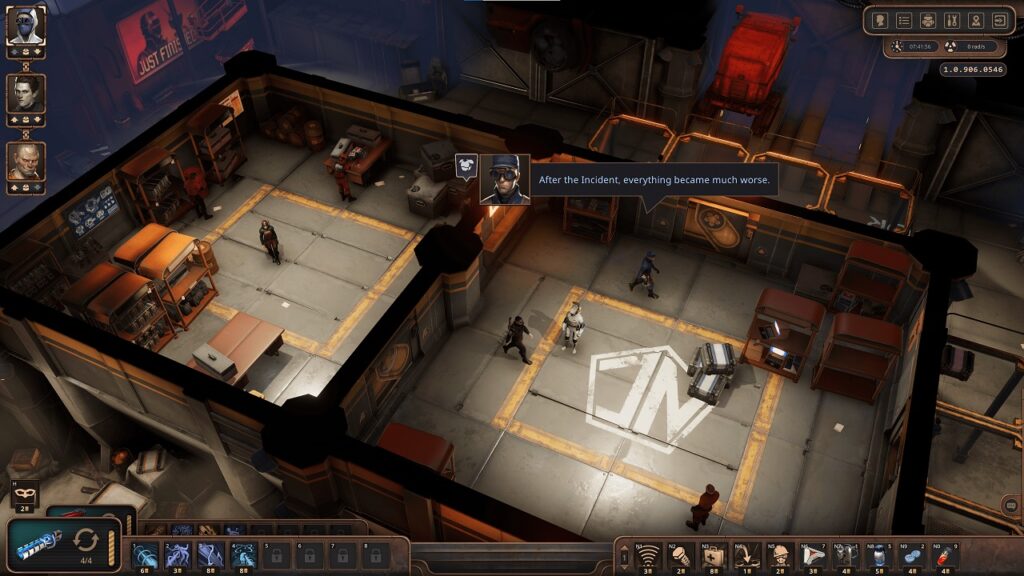
If you’re a fan of Wasteland and the old Fallout games you’ll probably like what Encased has to offer. The game takes place in an alternate version of the 1970s where a mysterious structure known as the Dome was discovered to contain advanced pieces of technology and bizarre artifacts. The Dome is believed to have been built by an ancient civilization but nobody knows for sure who made it, or why.
Playing as an employee of the CRONUS Corporation, your job is to explore the Dome while trying to uncover the many mysteries encased within. The game features a robust character creator with multiple classes and skills to choose from. As you make your way through the Dome, you’ll gradually be able to recruit companions and create a party of like-minded adventurers.
Encased launched in a pretty rough state and the developers have been rather slow at patching things up. The game still has some problems that prevent us from placing it higher on our list, but we would still recommend checking it out if you’re a fan of post-apocalyptic/sci-fi isometric RPGs.
19. Underrail
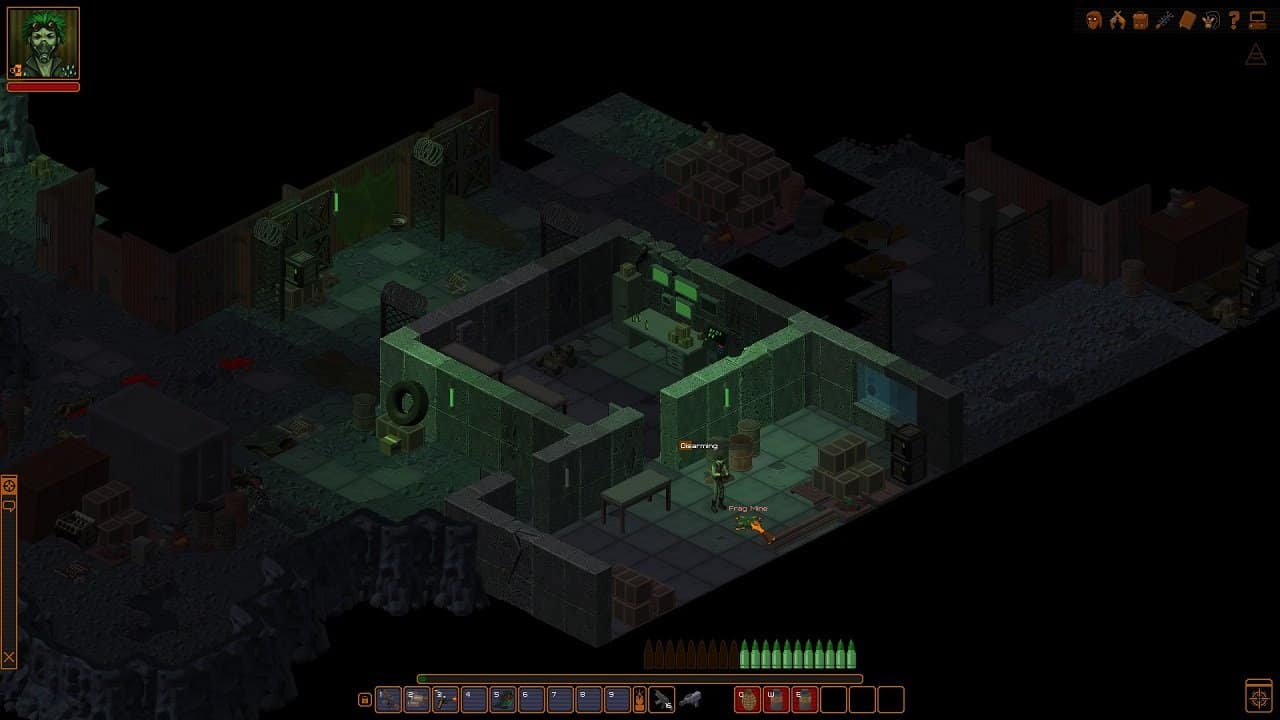
UnderRail is a Fallout-inspired RPG that takes place in a post-apocalyptic world where the remnants of humanity live underground in a vast system of metro stations. The game is notoriously difficult and there’s very little hand-holding involved. You’ll have to figure most things out all by yourself, which isn’t necessarily a bad thing.
UnderRail hasn’t received a sequel yet but it did get an expansion called Expedition a couple of years back. Fittingly enough, Expedition expands the game’s already sizeable map even further and adds more diversity to it. Most notably, there’s an entire underground sea you can explore.
18. Titan Quest
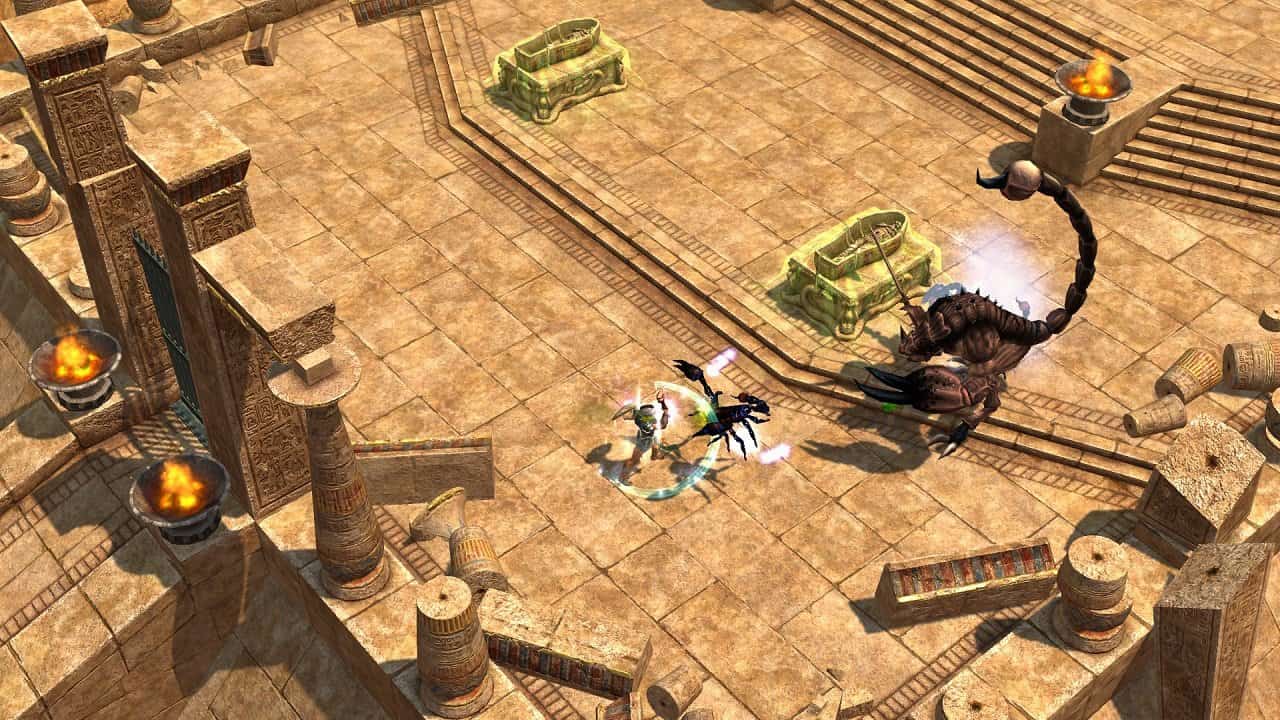
Titan Quest is an action RPG that sticks pretty closely to the classic Diablo formula. There’s not a lot to write home about as far as the gameplay is concerned but the setting is definitely something to behold. The game takes you on an epic journey throughout Ancient Greece, Egypt, China and more while pitting you against Titans and various mythological creatures.
If you’re planning to pick it up make sure to get the Anniversary Edition. That version also includes the Immortal Throne expansion. There are two additional expansions you can check out – Atlantis and the Viking-themed Ragnarök.
17. Final Fantasy Tactics
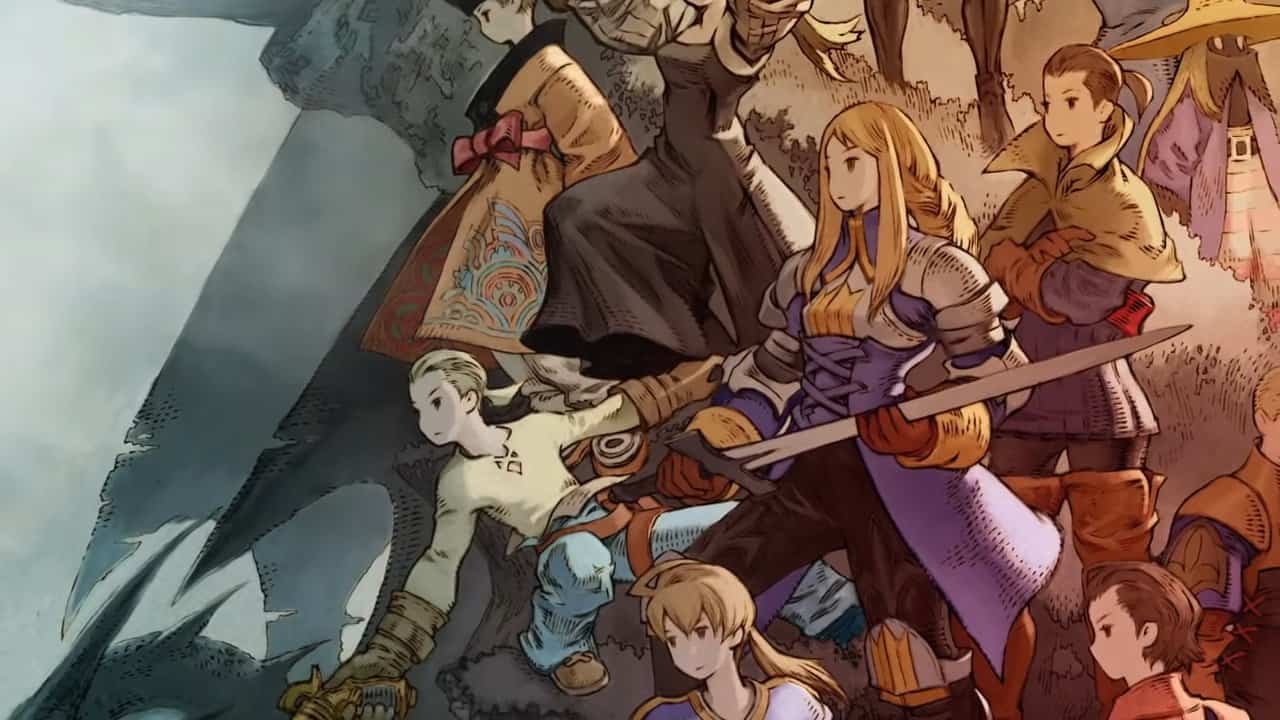
Isometric RPGs tend to be associated with PC gaming but you can also find a few examples on consoles. With Final Fantasy Tactics being among the most well-known ones.
Despite launching during the same year as the much-beloved Final Fantasy VII, Tactics wasn’t overshadowed by the mainline entry and managed to attract a lot of positive attention from fans and critics alike. In no small part thanks to its setting and combat system.
Word on the street is that Final Fantasy Tactics might be getting a remaster soon but Square Enix has yet to confirm the rumor.
16. Torchlight 2
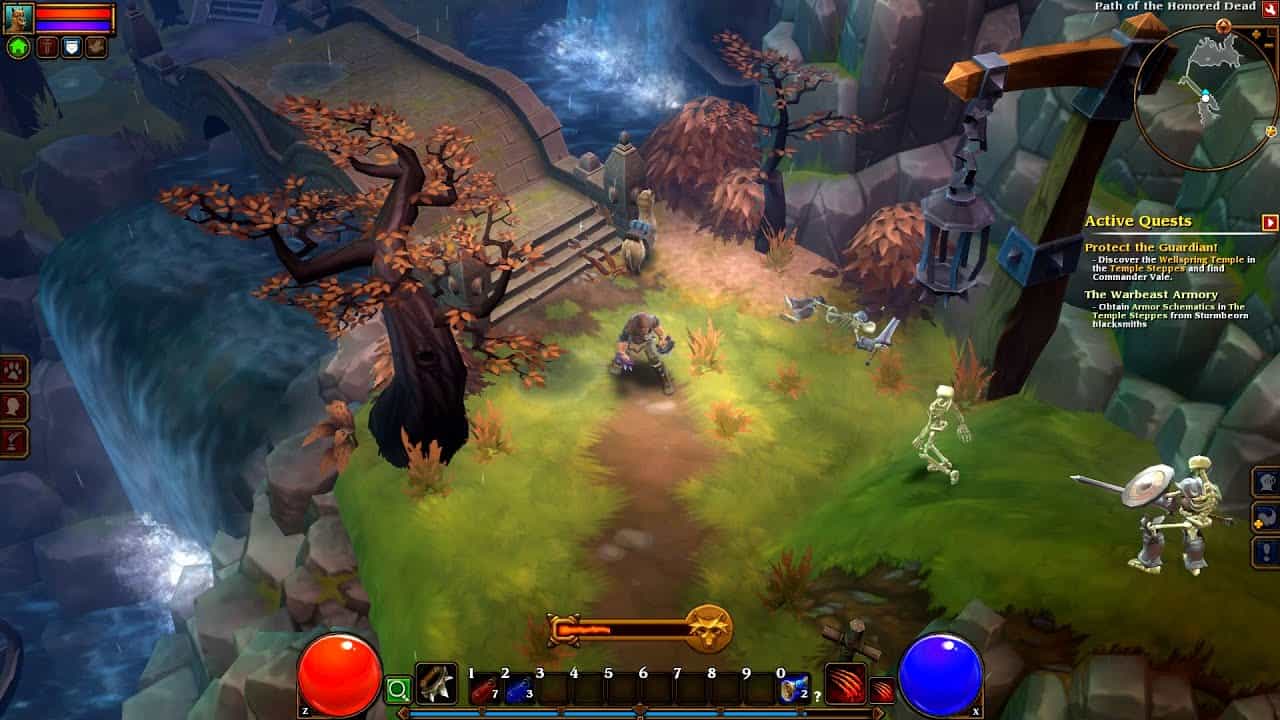
Torchlight is a series of dungeon crawlers that borrows a lot of gameplay elements from Diablo. However, Torchlight is a lot more colorful and doesn’t take itself nearly as seriously. There’s just as much endless clicking to look forward to, though.
The first two entries in the series are both fantastic but Torchlight 2 gets a bit more love from us. Primarily because it features co-op. As far as Torchlight 3 is concerned, the game wasn’t developed by the original team and it shows. We recommend giving that one a wide berth.
15. Age of Decadence
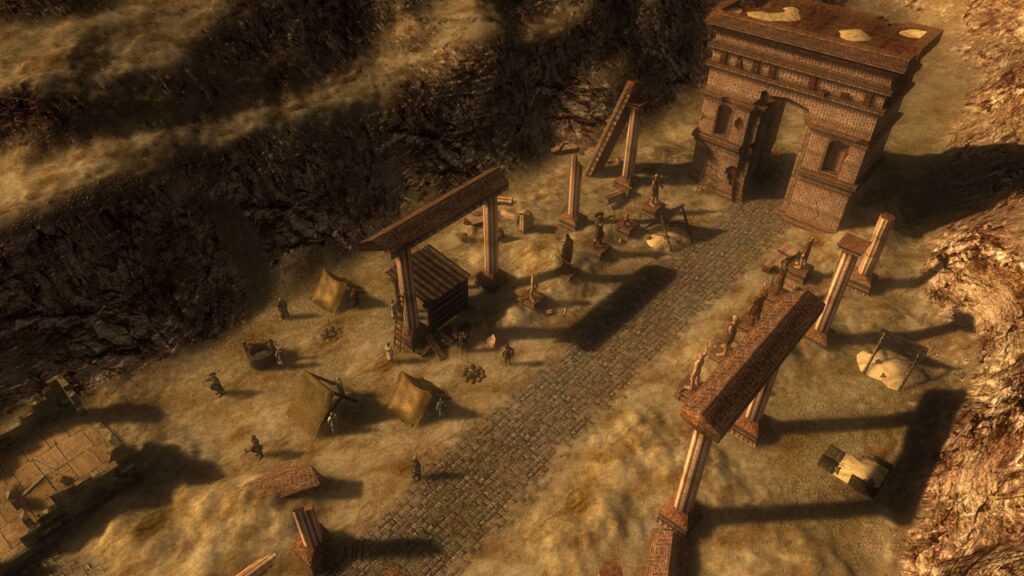
The debut project of Iron Tower Studio, Age of Decadence is a tactical RPG with turn-based combat that draws a lot of inspiration from CRPGs of the 90s and early 2000s. What immediately stands out about this one is the setting, which could best be described as a post-apocalyptic version of the Roman Empire.
Magic and fantastical creatures are a thing here, but the game is less about dungeon crawling and more about political intrigue and societal collapse. The developers themselves warn that this game isn’t for everyone, and they’re right.
Age of Decadence presents the player with difficult choices at every step of the way and the combat system is extremely punishing. To say that the game has a steep learning curve would be an understatement. But if you’re patient and determined enough to see it through, Age of Decadence is an extremely rewarding game that’s likely to leave a lasting impression on you for years to come.
14. Jagged Alliance 2
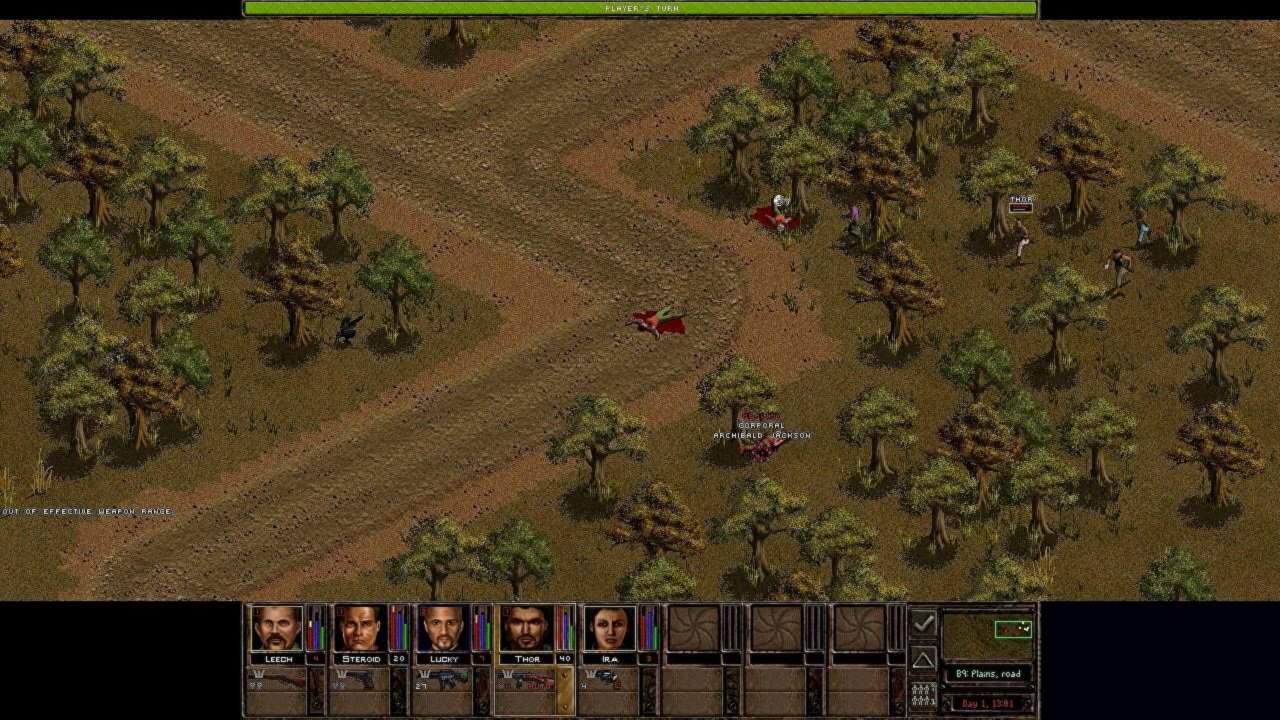
Jagged Alliance is a very underrated series of tactical isometric RPGs that started back in the 90s. These games put you in charge of a group of rebels trying to take down oppressive regimes in various fictional countries. Challenging XCOM-like combat, memorable characters, and plenty of humorous banter are some of the main staples of the series.
Jagged Alliance had a promising start but, unfortunately, things went downhill pretty fast after the second installment. THQ Nordic and Haemimont Games are currently trying to revive the franchise with the upcoming Jagged Alliance 3. We’ll just have to wait and see how that pans out.
13. Pathfinder: Wrath of the Righteous
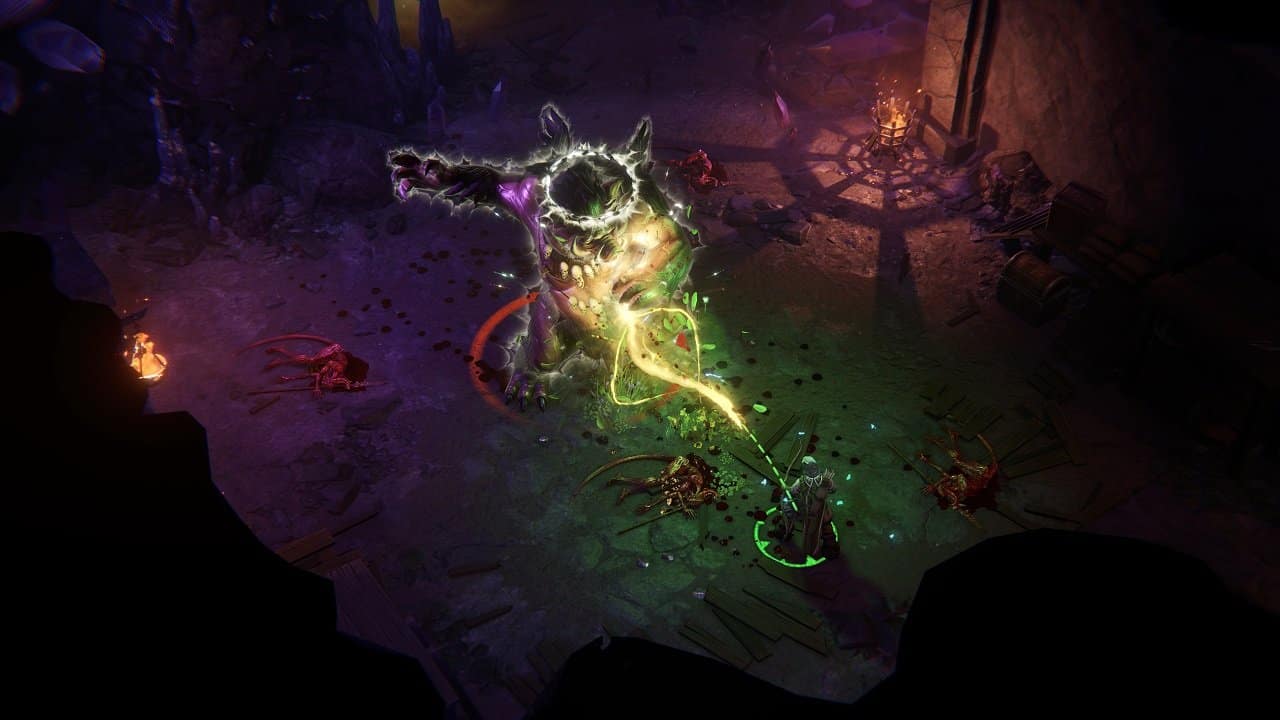
Pathfinder: Wrath of the Righteous is the newest title on this list, having released just a couple of months back on September 2nd. The game is the sequel to 2018’s Pathfinder: Kingmaker but doesn’t follow the same story as the original. It does, however, improve upon it in every conceivable way.
Wrath of the Righteous brings to the table a very robust character customization system, with 25 classes, 12 races, and more than one thousand spells to choose from. Other highlights include more emphasis on player choices and the ability to switch between real-time and turn-based combat on the fly.
12. Arcanum: Of Steamworks and Magick Obscura
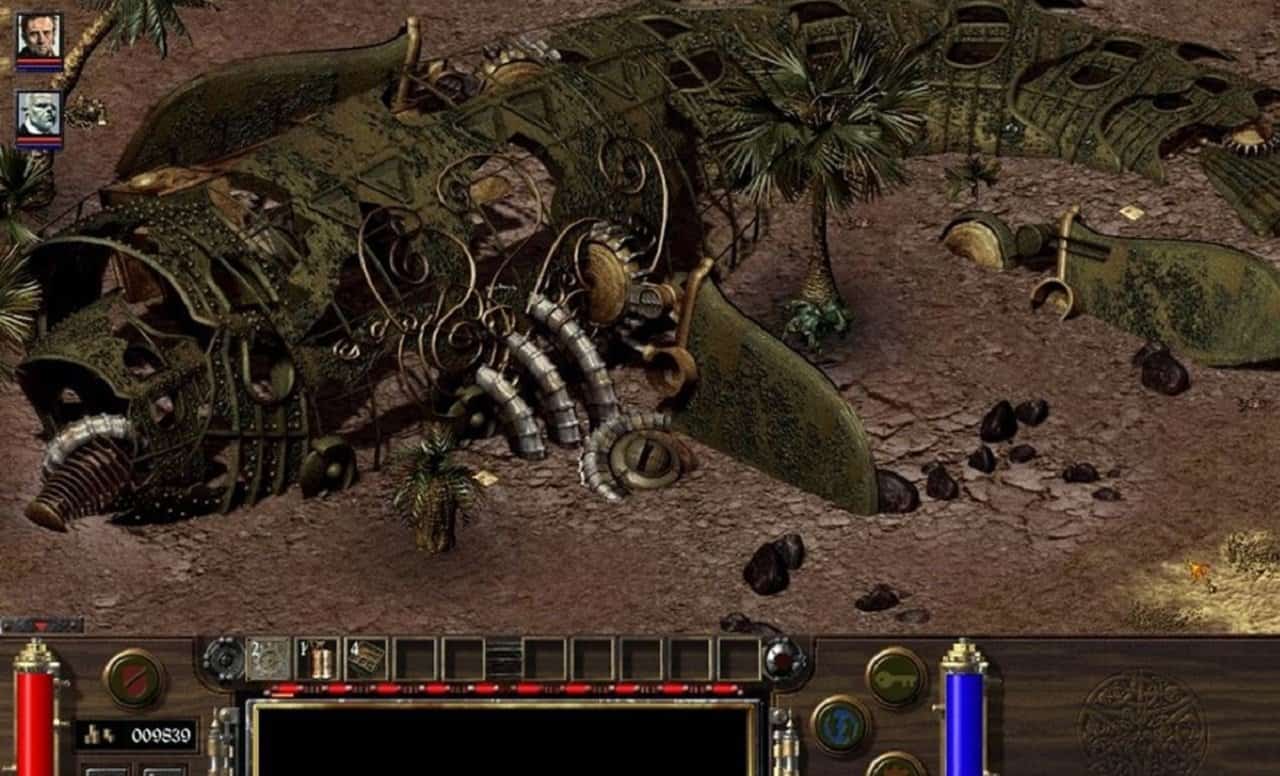
Arcanum is a pretty unique steampunk-themed isometric RPG that takes place in a world where magic and technology coexist. Fittingly, you can mix and match a wide assortment of magical abilities and tech-based skills when customizing your character while also being able to choose between an array of fantasy races.
The game takes place across a huge map filled with hundreds of characters and quests. One of the other main selling points of Arcanum is its freedom of choice. Despite being a massive game, you can complete it without ever engaging in combat. Conversely, you can go crazy and kill every single NPC in the game.
Arcanum: Of Steamworks and Magick Obscura was the debut project of a short-lived company called Troika Games. The studio went on to create two other solid titles – Vampire: The Masquerade – Bloodlines and the Temple of Elemental Evil – before shutting down in 2005. The devs who founded Troika also helped design Fallout and worked on a number of other great RPGs like Wasteland 2, Tyranny, Diablo III, and more.
11. Shadowrun: Dragonfall
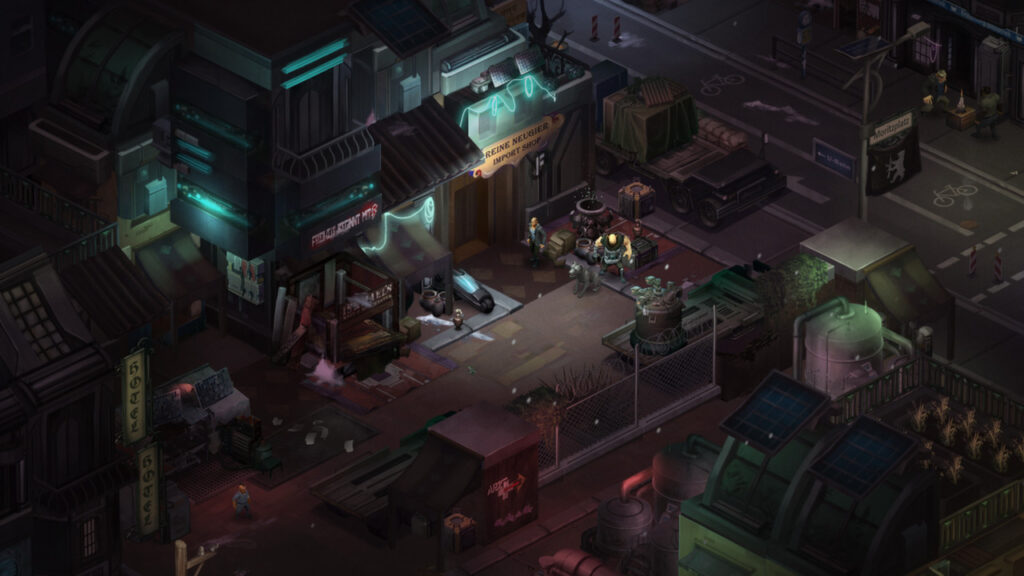
The Shadowrun tabletop game spawned a number of video game adaptations over the years. Some more successful than others. The version developed by Harebrained Schemes is easily the best one so far. And they’ve made not just one title but an entire trilogy.
Initially an expansion to Shadowrun Returns, the first entry in the trilogy, Dragonfall eventually received a standalone version complete with a bunch of extra content, all bundled together in Shadowrun: Dragonfall – Director’s Cut. One year later came the third entry, Shadowrun: Hong Kong. The entire trilogy is very good but Dragonfall is generally seen as the best of the bunch.
It’s a bit hard to describe what these isometric RPGs are all about in just a few words. But, essentially, Shadowrun takes place in a near-future setting where magic and technology co-exist. You’ve got a wide range of themes to look forward to, including, fantasy, sci-fi, cyberpunk, and more, all blending together seamlessly to create a very unique universe.
10. Pillars of Eternity Ii: Deadfire
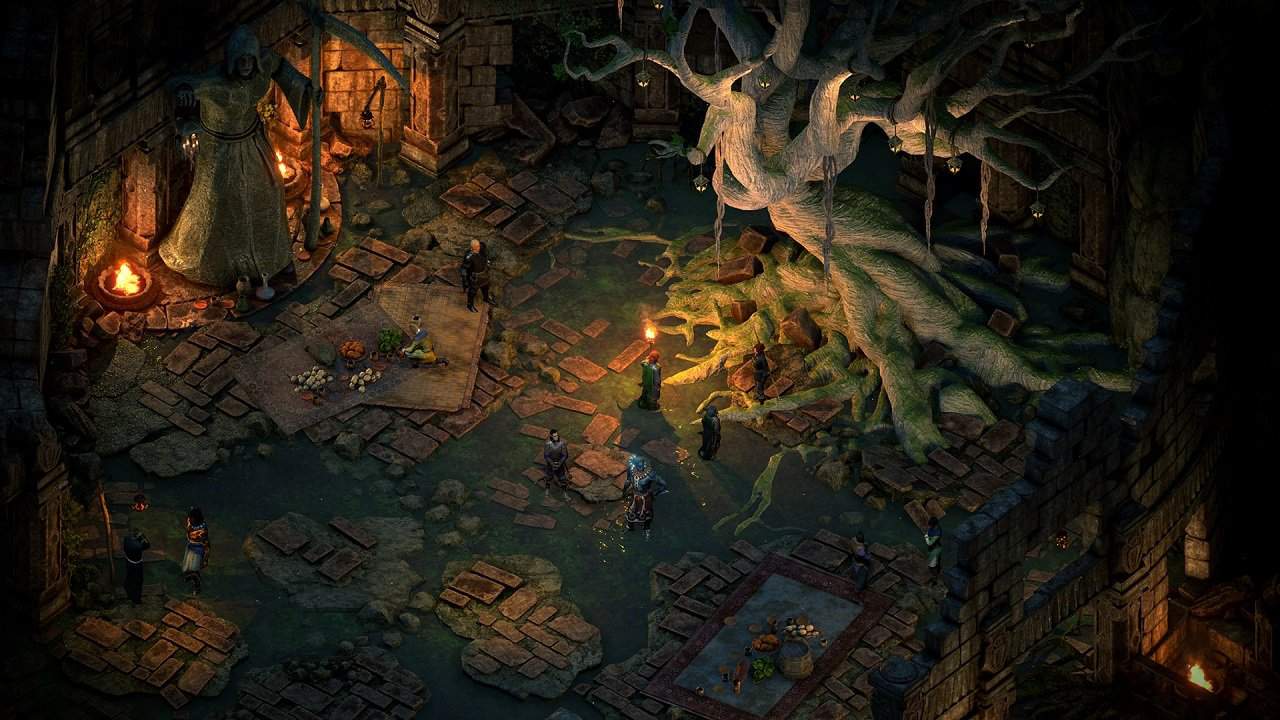
If you enjoy old-school D&D-style isometric RPGs you’ll love what Pillars of Eternity has to offer. The series was developed by Obsidian Entertainment as a love letter to 90s CRPG like Baldur’s Gate, Icewind Dale, and Planescape: Torment.
These games won a plethora of awards for their incredible writing so hopefully, you’re a fan of rich storytelling. If you’re not, that’s too bad because you’ll need to do A TON of reading while playing this game.
We’re placing the sequel, Pillars of Eternity II: Deadfire on the list. But we highly encourage you to check out both games. Deadfire continues where the original left off so it’s important to play the first entry if you want to understand what’s going on.
9. Neverwinter Nights

Neverwinter (from the D&D Forgotten Realms campaign) served as the setting for a wide variety of video games over the years. Including one of the very first MMORPGs ever made. The absolute best title that made use of the setting, though, is undoubtedly 2002’s Neverwinter Nights.
Neverwinter Nights was the perfect storm that brought together Bioware and Obsidian Entertainment, two of the all-time best developers of RPGs. The game features a fantastic campaign taking place primarily in the titular city of Neverwinter along with a multiplayer mode and a toolset that allows players to create their own custom content.
Neverwinter Nights was followed up by a solid sequel in 2006 and a remastered version in 2018. If you’re a fan of the setting, we recommend also checking out the 2013 MMORPG known simply as Neverwinter.
8. Tyranny
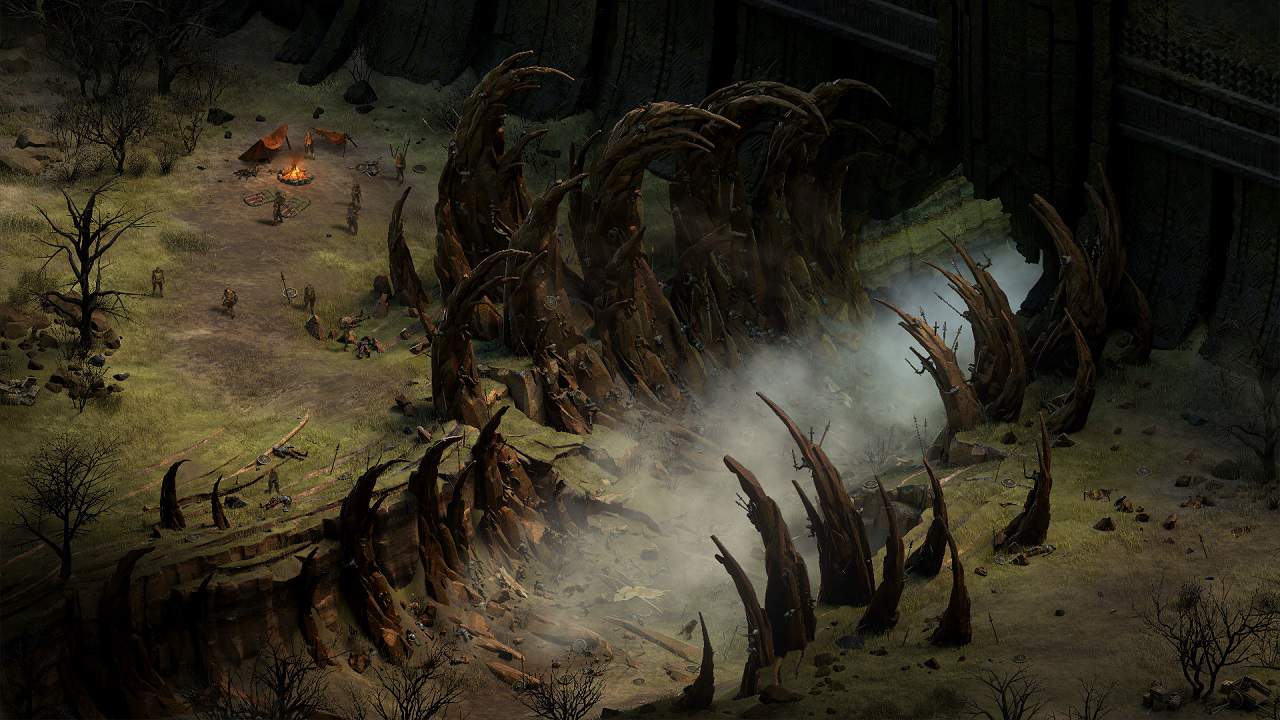
Most isometric RPGs have you playing as a hero or group of heroes on a quest to rid the world of evil. Well, in the world of Tyranny, evil already won and you’re playing as one of the main villain’s subordinates. It’s up to you whether you want to maintain order with an iron fist or try to dismantle the system from within.
Tyranny has a very interesting story and a setting to match. The game was developed by Obsidian Entertainment shortly after Pillars of Eternity and sticks pretty closely to that game’s formula. However, you can expect a lot more meaningful choices this time around. As well as a more memorable cast of characters.
7. Wasteland 3
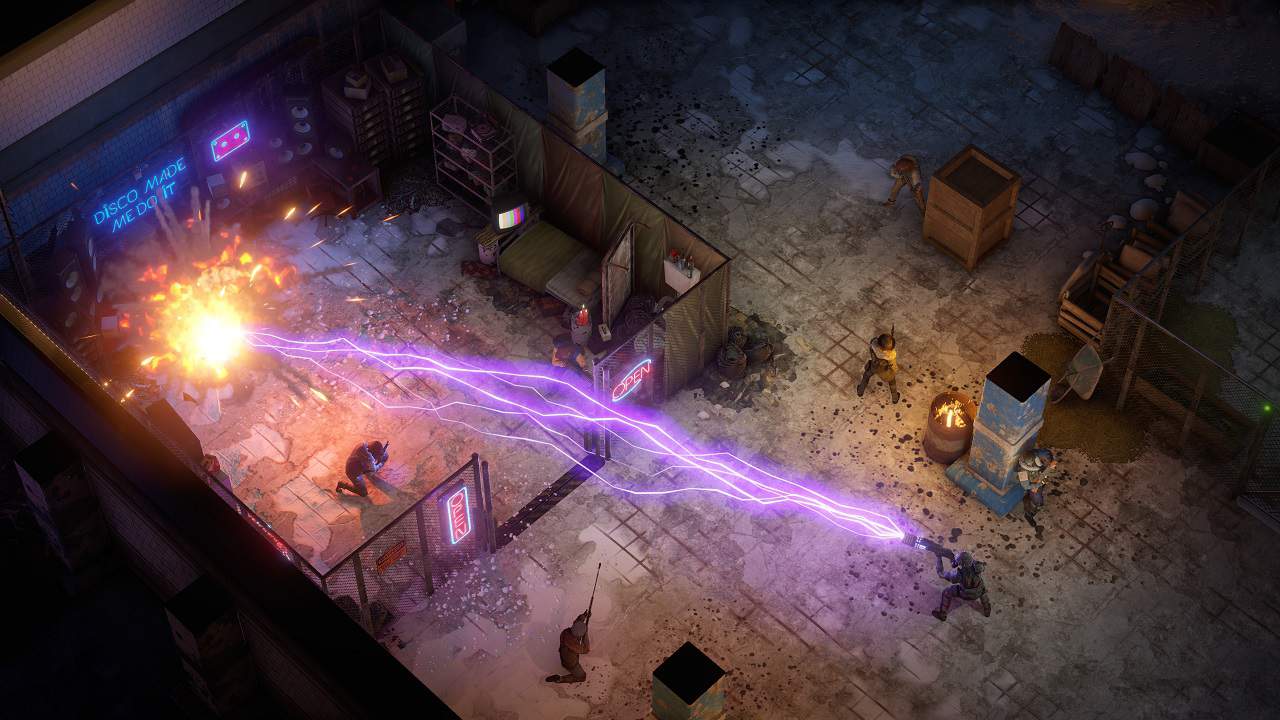
Wasteland is one of the oldest series of isometric RPGs out there. The first entry came out way back in 1988 and laid out the foundation for the Fallout series. As well as many other RPGs. But despite being so monumentally important for the genre, the series pulled a Dr. Who and took a huge hiatus before being resurrected by inXile in 2014.
We really love Wasteland 2 but we have to go with the third entry as our favorite because of the improved visuals, XCOM-inspired combat system, and the addition of co-op. But honestly, you should check out the entire series because all the Wasteland games are great.
6. Planescape: Torment
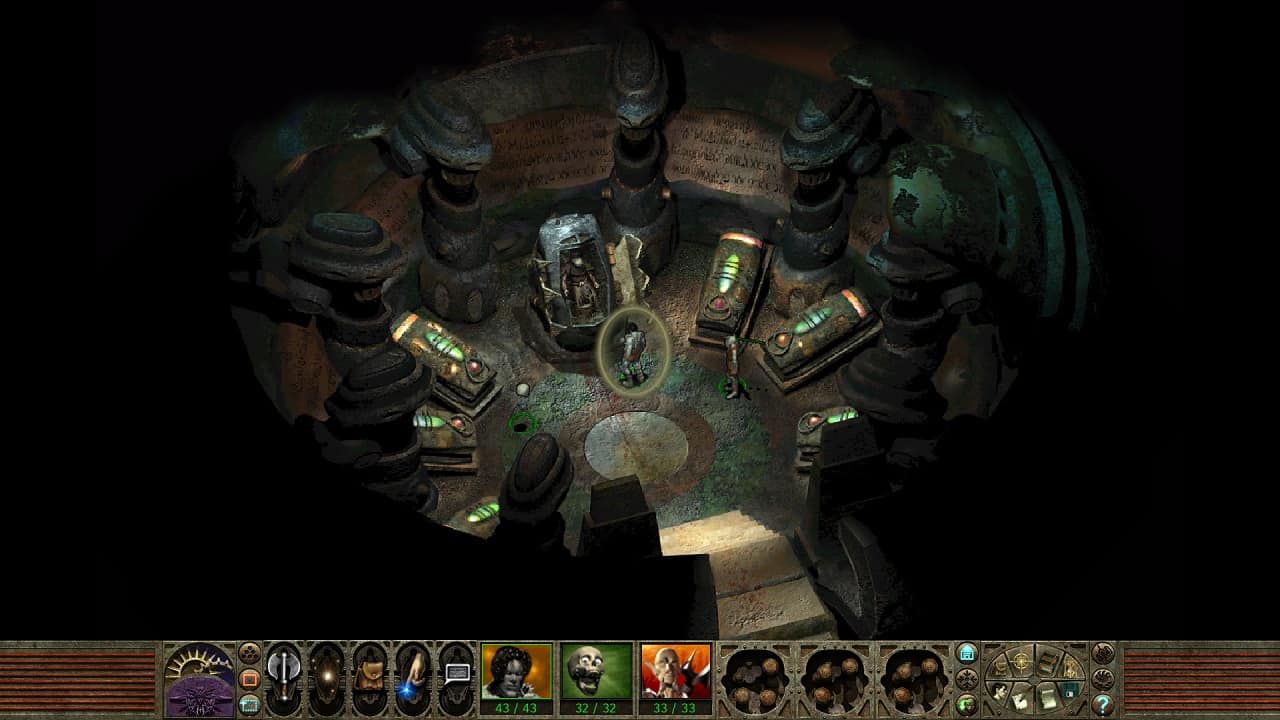
The late 90s were an incredible time for isometric RPGs. Baldur’s Gate, Diablo, Fallout, and a few other big names all came out in the span of a couple of years. Then, just as the decade was wrapping up, we got another huge one in the form of Planescape: Torment.
Unlike most of the other titles on this list, Planescape: Torment doesn’t feature a whole lot of combat. The game focuses instead on the story, which centers around an intriguing protagonist known simply as The Nameless One, an immortal man searching for memories of his previous lives.
Planescape: Torment received a remastered version back in 2017. That same year inXile launched a spiritual successor known as Torment: Tides of Numenera.
5. Path of Exile
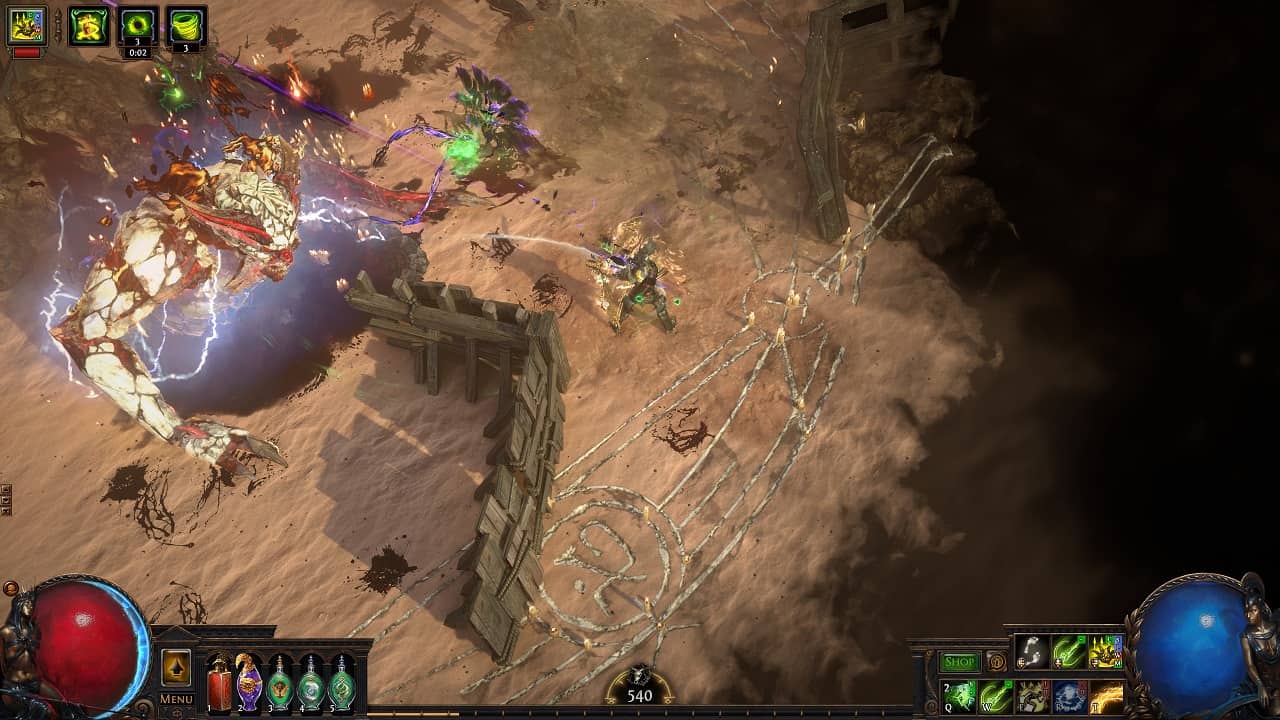
Path of Exile is one of the most popular isometric RPGs at the moment and has been for quite a few years now. The game takes a lot of inspiration from Diablo but does so much more with the classic hack-and-slash formula.
The skill tree, in particular, is truly jaw-dropping and more in-depth than pretty much anything else in the genre. Well, at least until Path of Exile 2 launches next year.
Another important factor that contributed to the success of the game is its business model. Path of Exile is free-to-play and while there are plenty of microtransactions you can buy, you can easily spend hundreds or even thousands of hours in this game without paying a penny. Provided you don’t mind (a lot of) grinding.
4. Baldur’s Gate Ii: Shadows of Amn

Baldur’s Gate is another series of isometric RPGs taking place in the Forgotten Realms D&D campaign setting. And another classic RPG brought to us by Bioware. Serving as a direct sequel to the original Baldur’s Gate, Shadows of Amn continues the story of Gorion’s Ward while improving upon the formula established by the original in pretty much every way.
Baldur’s Gate II is a truly epic RPG that can take you on an adventure of a lifetime. If you’re willing to take the time to complete all the game’s side quests along with all the content introduced in the Throne of Bhaal expansion, you can expect up to a whopping 300 hours of playtime. That’s an insane amount of time to be spending on a single playthrough, but definitely well worth it.
Similar to a lot of other classic CRPGs, Baldur’s Gate II and its predecessor both received remastered versions a few years back. Once you’re done with those you may want to check out the early access version of Baldur’s Gate 3.
3. Disco Elysium
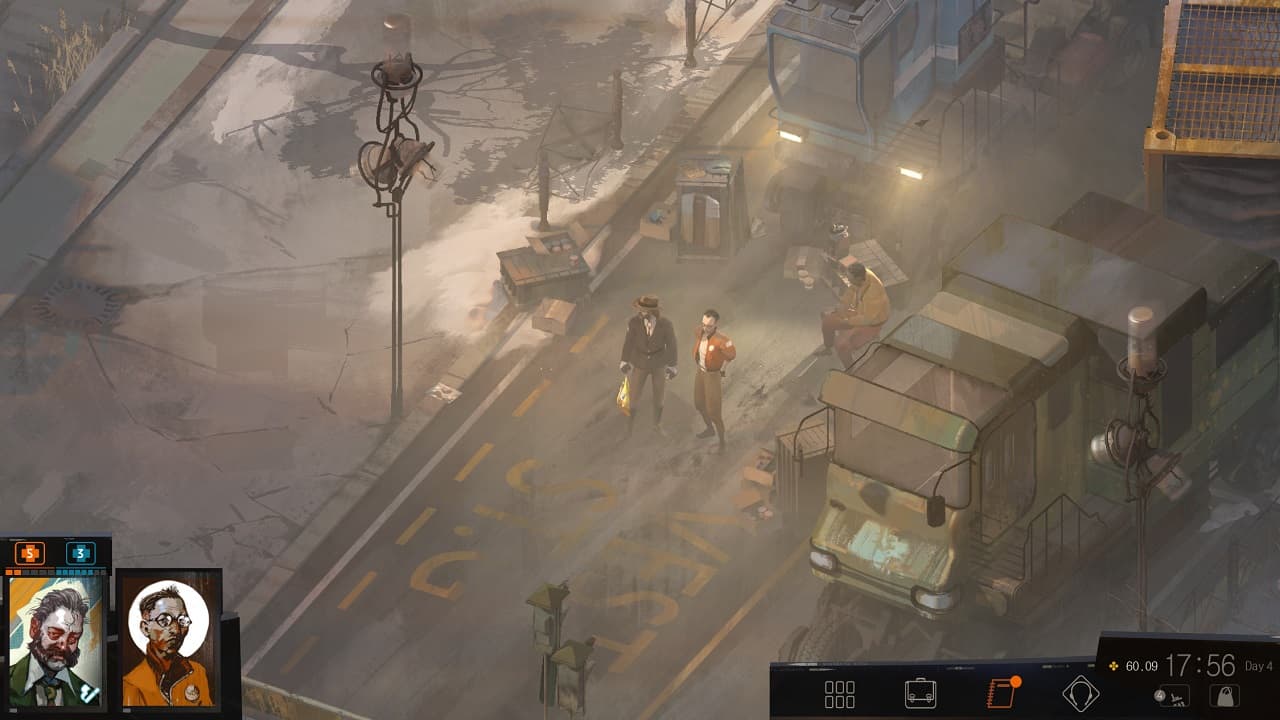
The debut project of UK-based indie studio ZA/UM, Disco Elysium is an innovative RPG that took the gaming community by storm back in 2019. The game puts you in the role of an amnesic detective trying to solve a murder mystery while picking up clues about his own state of mind along the way.
The game doesn’t feature any actual combat but makes up for it by giving players an incredible amount of freedom of choice. Your playable character acts sort of like a blank slate that can be shaped to your liking. It’s up to you whether you want to become a well-respected detective, a notorious alcoholic ridiculed by everybody, or anything in between.
2. Fallout 2
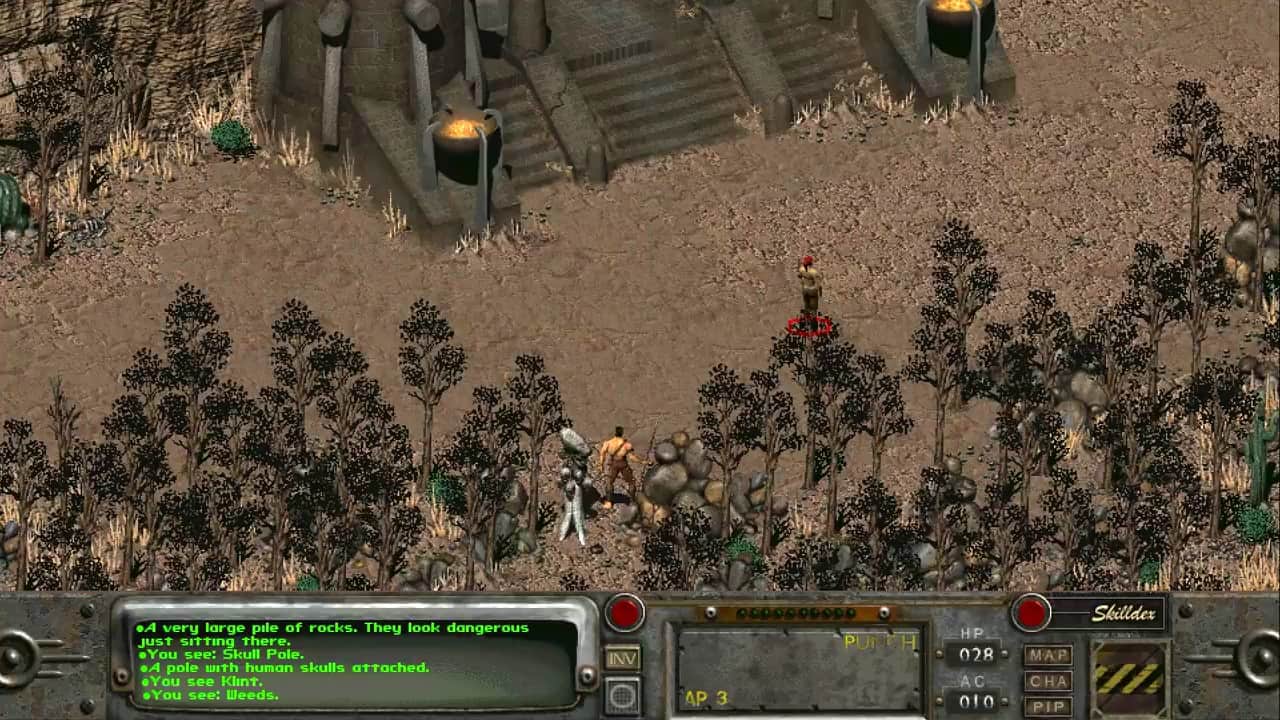
Some of you may be a bit too young to remember this but the Fallout series used to be a lot different back in the day. The first two entries into the main series were isometric RPGs similar to Wasteland. The same goes for the two spin-offs, though the developers did try to dip into other genres with those.
Talking about the old Fallout games, especially the second entry, always brings back a lot of fond memories. And while we do appreciate (some of) Bethesda’s efforts to revive and continue the series, we still miss the isometric perspective. Hopefully, the company decides to bring it back again at some point. When they’re not busy making another version of Skyrim.
1. Divinity: Original Sin 2
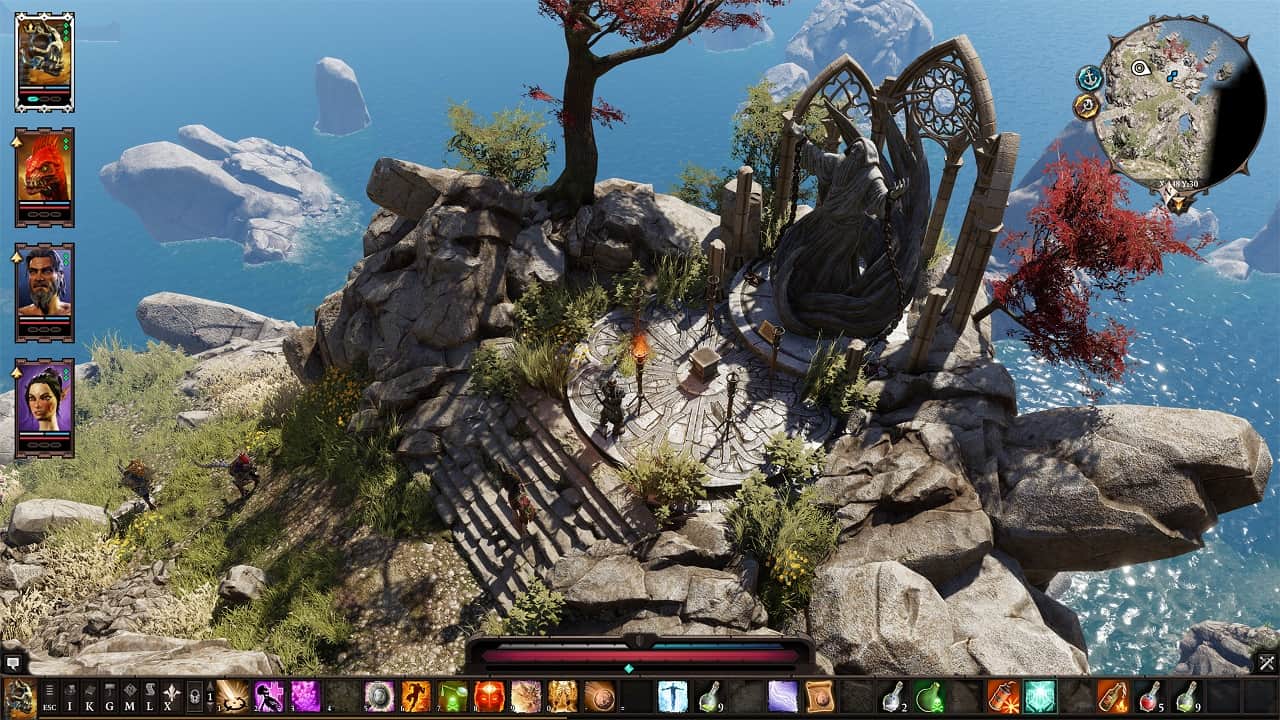
There are many words I could use to describe Divinity: Original Sin 2 but the first one that comes to mind is ‘incredible’. This game is a modern masterpiece that puts to shame most other isometric RPGs of the past decade. It’s also one of the best co-op games ever made.
What’s truly remarkable about Divinity: Original Sin 2 is the fact that this is a crowdfunded game developed independently by a studio that was fairly small at the time of its making. It just goes to show that you don’t always need the backing of a major AAA publisher to make a fantastic game.
Larian Studios is currently working on Baldur’s Gate 3, another ambitious isometric RPG that has the potential to be just as good as Divinity: Original Sin 2. The game is already shaping up nicely in early access but only time will tell if Larian can catch lightning in a bottle twice in a row.
Honorable Mentions
The following games were originally part of our main list, but we eventually decided to place them in their own category because they didn’t quite fit the theme we were initially going for.
Dragon Age: Origins
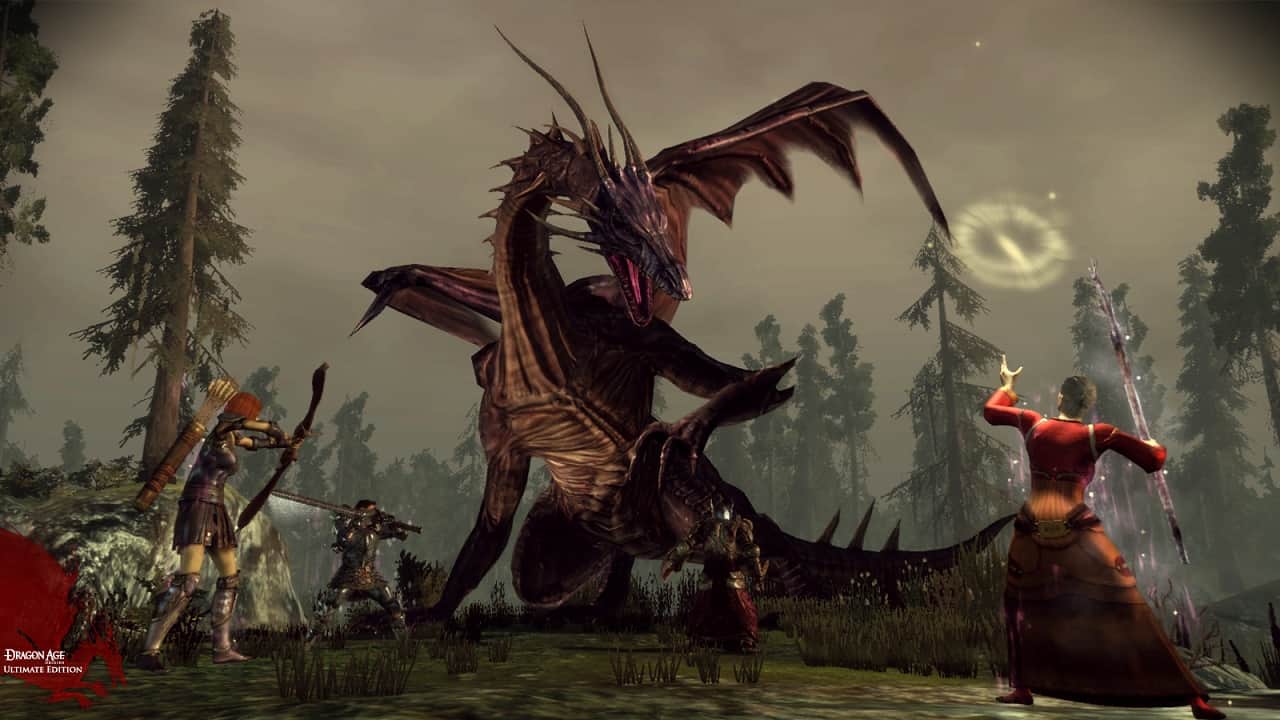
It seems like Bioware couldn’t quite decide whether they wanted to make a top-down or a third-person RPG when they developed Dragon Age: Origins. Eventually, they went with both and the system ended up working great. The game lets you switch seamlessly between the two perspectives in a way that feels just right. Unlike its sequels.
The developers were at the top of their game while making Dragon Age: Origins and it shows. The game features some of the company’s best storytelling and its cast of characters is second only to that of Mass Effect 2. Plus, it’s one of those games where every little decision you make has long-term ramifications. Some of these decisions can even impact events that happen in Dragon Age II and Dragon Age: Inquisition.
Reason for Being in the Honorable Mentions Category:
Dragon Age: Origin features a tactical top-down camera mode but that doesn’t make it an isometric game.
Diablo Ii
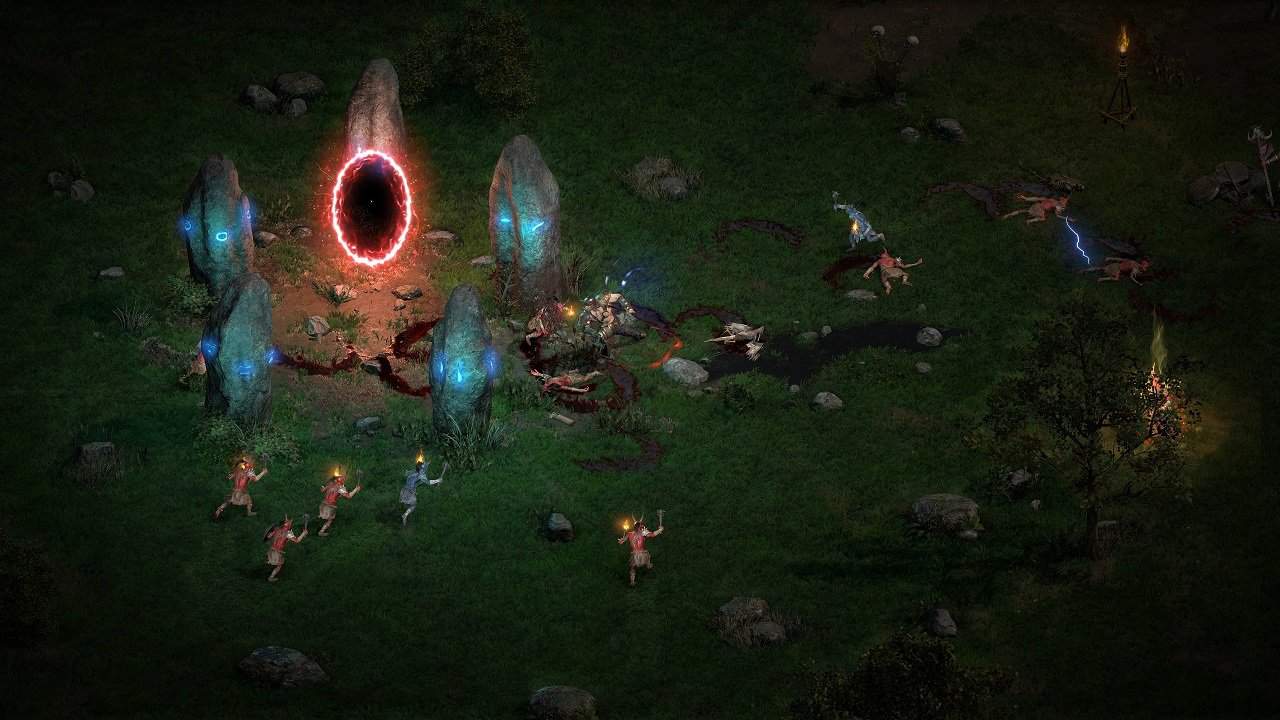
Diablo II is hands down one of the most influential isometric RPGs of all time. The game served as a major source of inspiration for a lot of other titles over the years, including the much-beloved Path of Exile. Despite being over two decades old at this point, Diablo II is still the quintessential hack-and-slash.
If you’re not the biggest fan of retro graphics, you may want to give Diablo II: Resurrected a shot. I wouldn’t blame you for being skeptical after what happened with Warcraft III: Reforged but Blizzard somehow managed to not completely botch this one. It’s essentially the same game but with significantly better graphics. And that’s honestly all we can ask for from a remaster.
Reason for being in the honorable mentions category:
There’s some debate when it comes to this one, but the consensus seems to be that Diablo 2 doesn’t use a true isometric perspective. The perspective here would probably be better described as pseudo-isometric.
Hades
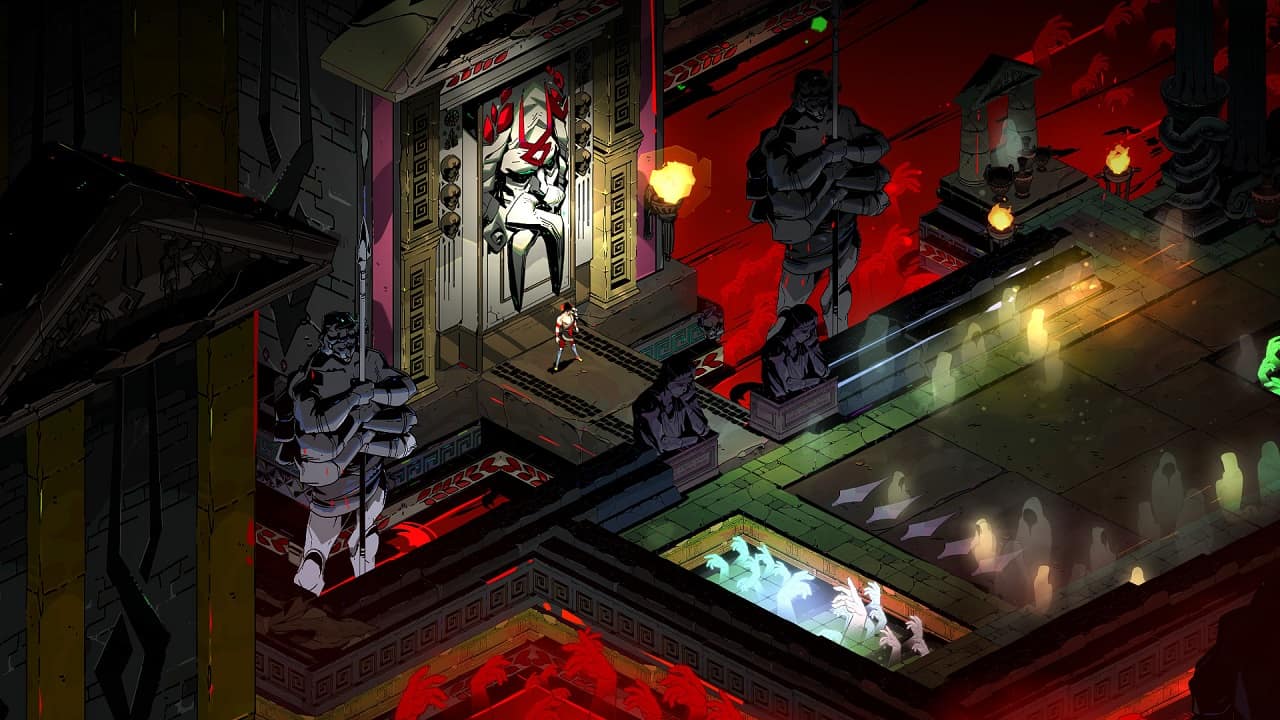
Developed by Supergiant Games, Hades is a rogue-like hack-and-slash that combines elements from several of the studio’s previous projects. Including Bastion, Transistor, and Pyre. However, Hades is definitely more than just the sum of its parts and features, among other things, a very original setting inspired by Greek mythology.
The game follows the adventures of Zagreus, son of Hades, as he attempts to escape the dreaded underworld and reach Mount Olympus. Not a simple task by any means but luckily, you’ll be aided by many well-known figures from Greek mythology along the way, including a few gods.
In addition to featuring an incredibly satisfying combat system, Hades also has some of the most beautiful visuals we’ve seen in recent years. As an added bonus, the story isn’t too shabby either.
Reason for being in the honorable mentions category:
Hades is a hack-and-slash roguelike with some RPG elements but it’s not predominantly a role-playing game.
Dungeon Siege
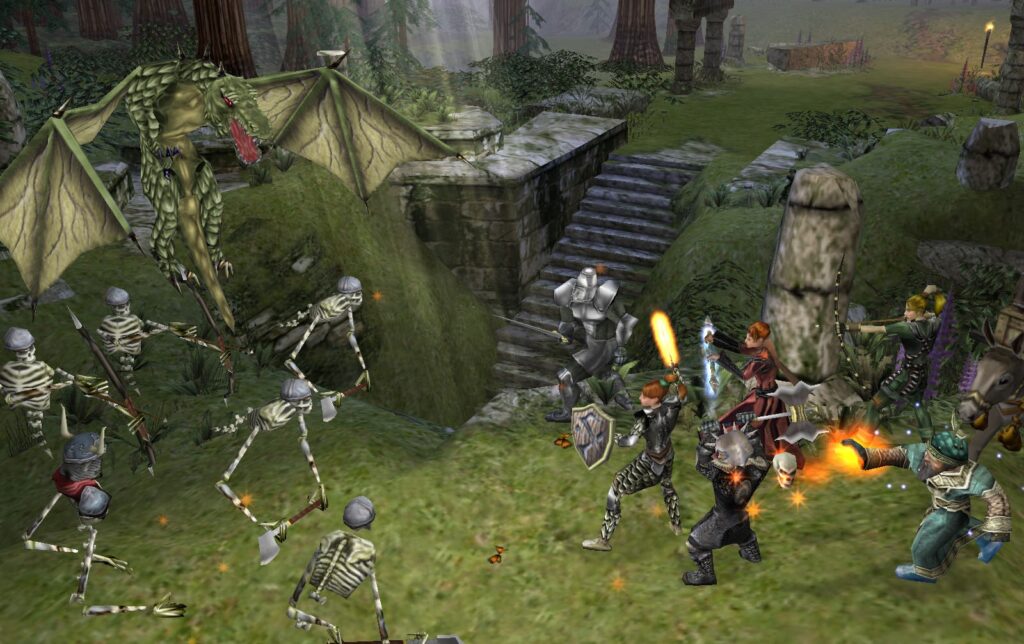
You rarely hear people discussing Dungeon Siege these days but the series was fairly popular back in the early and mid-2000s. The original Dungeon Siege came out 20 years ago and quickly gained a cult following among fans of isometric action RPGs. This is a pretty standard D&D-style RPG where you gather a group of adventures and set out to rid the world of evil. The medieval fantasy setting is also in line with what you might expect from a game like this.
Although Dungeon Siege doesn’t necessarily stand out from the crowd in terms of gameplay and setting, it does have a few unique features. First off, this is a true open-world game with no loading screens, which was pretty rare at the time. The game also has a good combat system made even better by the fact that you can have up to eight characters in your party. Or, even better, up to eight players in co-op.
Dungeon Siege was eventually turned into a trilogy and had a series of (terrible) movies made after it directed by the infamous Uwe Boll. While we definitely don’t want to see anymore movie adaptations, we wouldn’t mind a new Dungeon Siege game.
Reason for being in the honorable mentions category:
Honestly, I simply forgot about the series while I was putting together the list. These things happen. I may end up putting it on the main list further down the road but for now I’m keeping it as an honorable mention.
If you enjoyed this list make sure to check out some of our other ones down below.

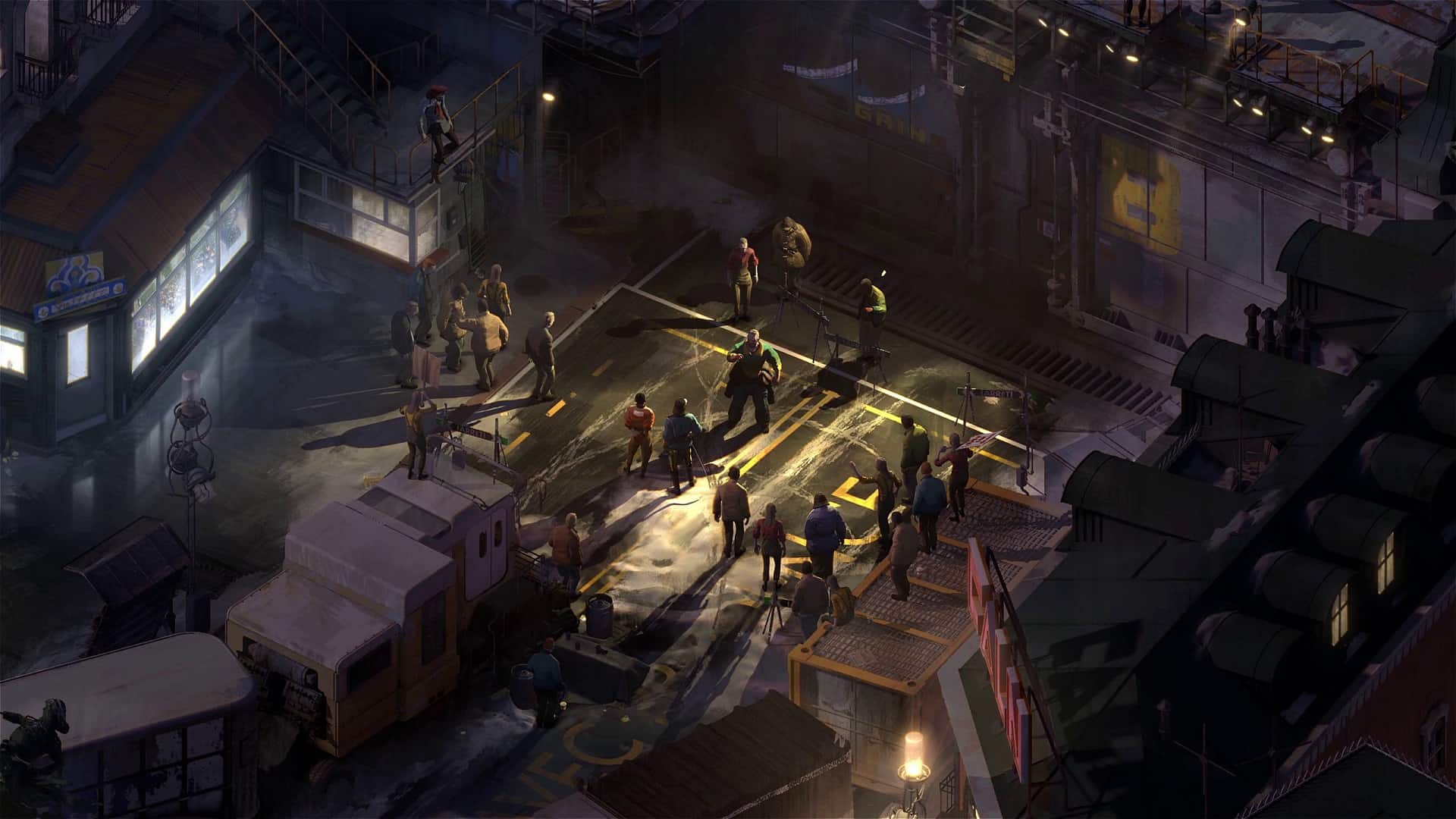
bruh no dungeon siege??
You know what? I completely forgot about that series. I only played the third one and that was ages ago. People are saying the first one is the best so I’ll add that as an honorable mention. I don’t have first-hand experience so I’m not sure how it compares to the games on the main list. Thanks for the suggestion.
Top 20 isometric games and 15 of them aren’t even isometric lmao. You know “isometric” is a specific projection right? It doesn’t just mean “top down”.
Planescape: Torment – place 6
Disco Elysium – place 3
All that one should know about this pseudo-top-20.
Champions of Norrath: Return to Arms not only needs to be in this conversation, but probably needs to hold a single-digit position on this list.
Gud’na?